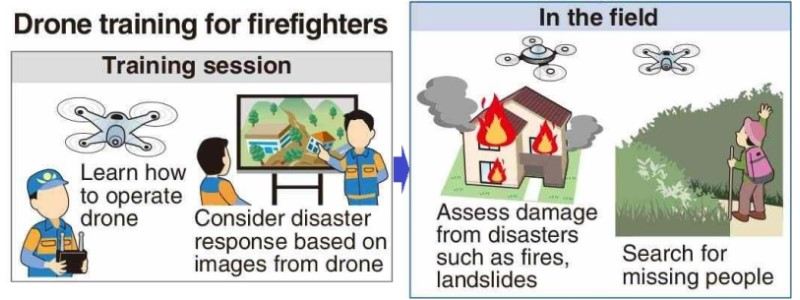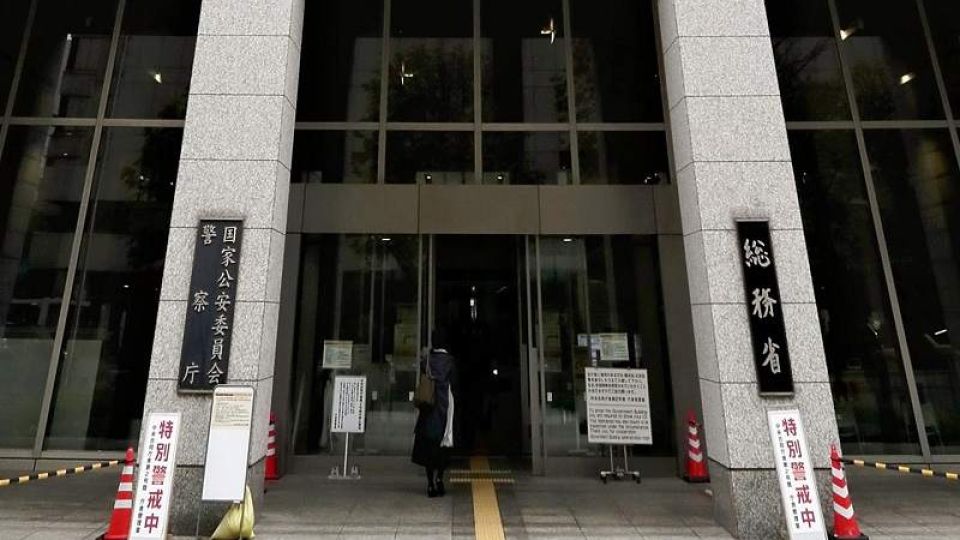September 28, 2022
TOKYO – Fire corps of local volunteer firefighters will introduce drones for their operations nationwide, the Fire and Disaster Management Agency has decided.
The agency, under the Internal Affairs and Communications Ministry, will subsidize the deployment of drones and hold training sessions on how to operate them in various locations starting next fiscal year. The aim is to help quickly assess the extent of the damage when a disaster occurs.
Drones can be remotely controlled to capture images from the sky, and can therefore be used to assess damage even while a disaster is ongoing, without the risks of going to the site. They are also more maneuverable than helicopters when searching for people involved in accidents in mountain areas.
The agency has been encouraging municipalities and other relevant organizations to deploy drones. To that end, it added drones this year to the subsidy program under which the agency helps municipalities provide their fire brigades with equipment such as generators and transceivers.
Firefighters will be taught to use drones at fire academies in each prefecture, learning basic operations and how to respond to a situation based on images taken by drones. The agency has allocated ¥40 million for this project in its budget request for fiscal 2023.
About 400 people are expected to participate in the training sessions.

The Yomiuri Shimbun
According to the agency, 429 of the 724 fire departments nationwide, or 59.2% of the total, were using drones as of April this year. However, only 40 of the nation’s 2,198 fire corps, or 1.8%, had deployed a total of 60 drones as of last December.
Some municipalities, such as Yaizu City in Shizuoka Prefecture, have organized a “drone squad” within their fire brigades.
Approximately 804,800 people belong to fire corps nationwide, though the number has been decreasing over the years. Fire corps are closely tied with the local communities, so utilizing drones could enable them to arrive at the scene quickly and assess the damage. It could be particularly effective in mountainous and depopulated areas where it takes time for firefighting teams to arrive on the scene.
Drones have been increasingly used at disaster sites. In the mudslide disaster that occurred in Atami, Shizuoka Prefecture, last July, the prefecture asked the Chubu Regional Development Bureau of the Land, Infrastructure, Transport and Tourism Ministry to take aerial pictures of the site from the first day of the disaster, to help assess the damage and search for missing persons.
In the Tohoku region and nearby areas hit by torrential rains in August of this year, drone cameras were used to evaluate the extent of damage to rivers and roads in Yamagata and Aomori prefectures.

